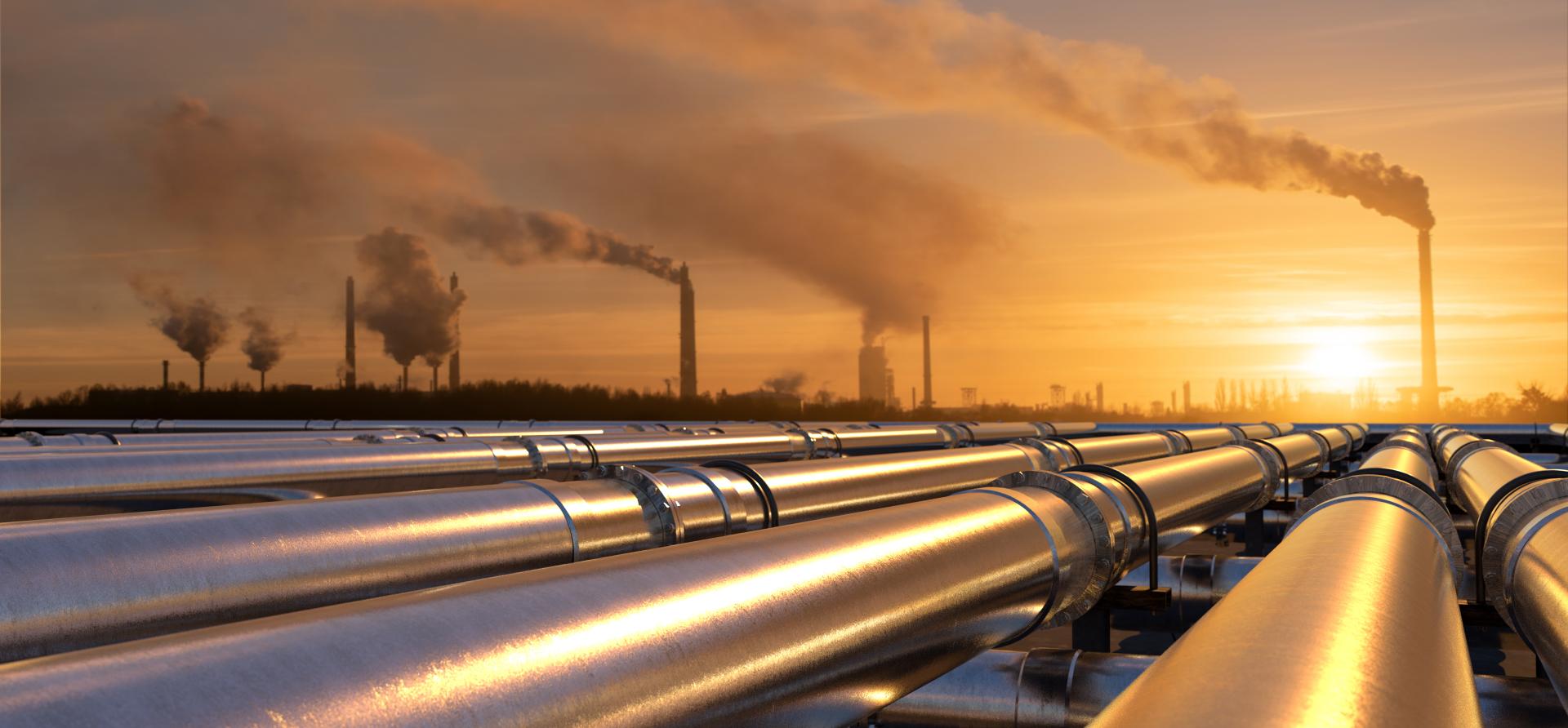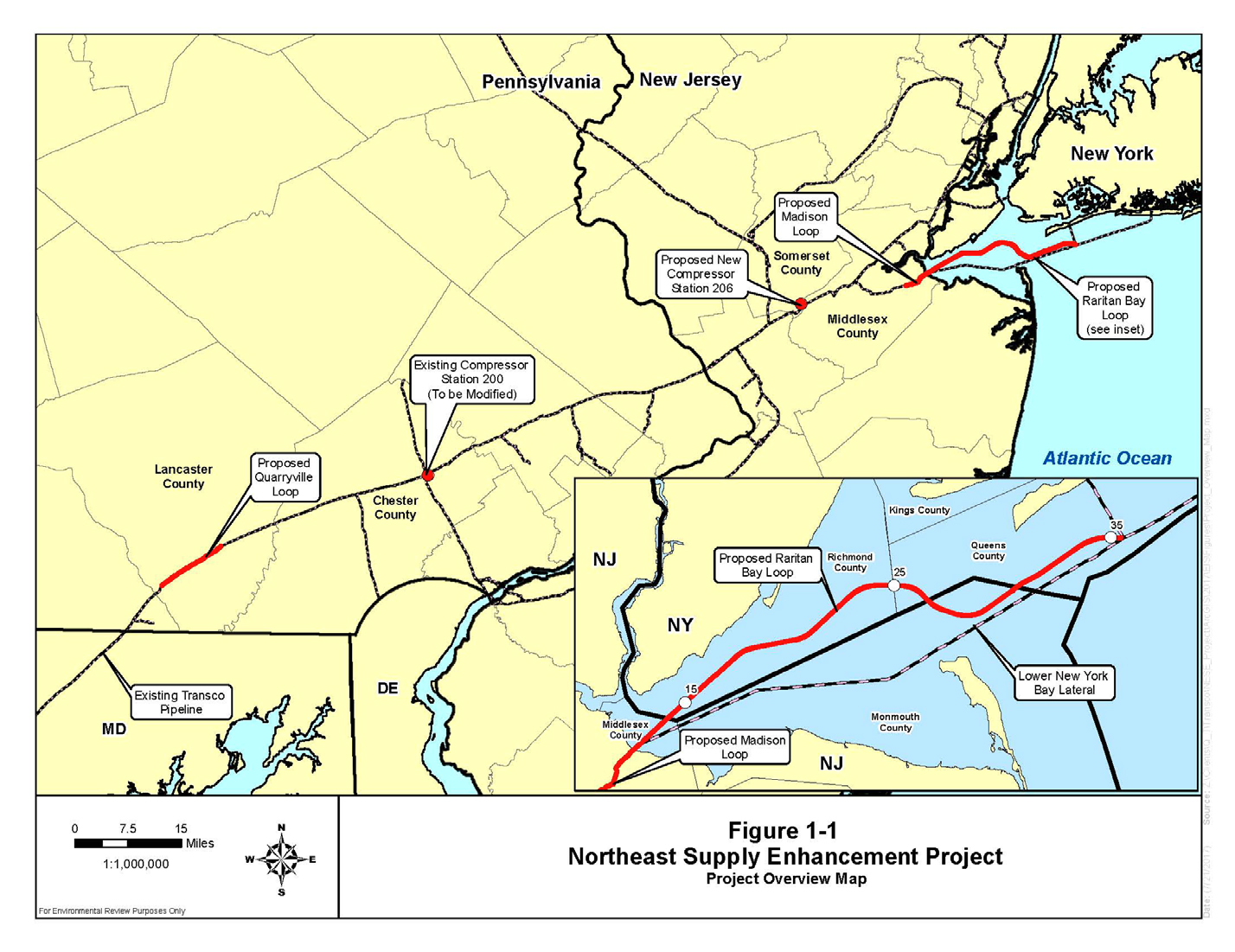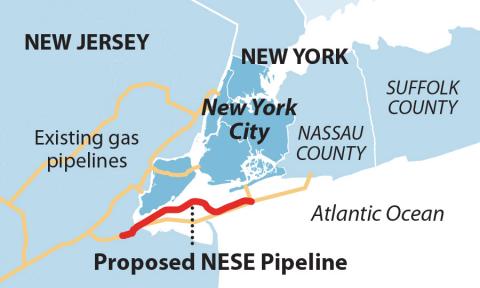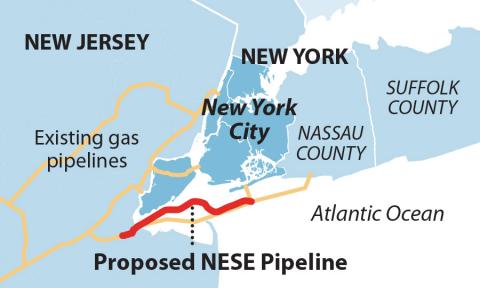Williams throws in towel on NESE pipeline project

Key Findings
Williams subsidiary Transco has declined to proceed with the embattled Northeast Supply Enhancement (NESE) pipeline.
IEEFA, community groups, environmentalists, energy experts and elected leaders warned the project was not necessary to meet peak demand.
The Federal Energy Regulatory Commission (FERC) approved the pipeline in 2019 with an inadequate analysis and extended the construction deadline in 2021 without a new analysis.
When FERC demanded evidence of progress before considering another extension, Transco declared it would just let the extension expire.
Pressed to put its money where its mouth was for the Northeast Supply Enhancement (NESE) project, Williams Companies’ subsidiary Transcontinental Gas Pipe Line Company LLC (Transco) has declared it is no longer pursuing authorization for the pipeline.
So ends the saga of a proposed pipeline that was never needed.
Transco, a subsidiary of pipeline industry giant Williams Corp., sought to build a system of 26- and 42-inch diameter natural gas pipeline stretching from Pennsylvania, through New Jersey, to a transfer point about three miles offshore from the Rockaway Peninsula in Queens, N.Y., to service a gas utility, National Grid. Although the utility’s system was meeting regular daily needs, Williams claimed the pipeline was necessary to meet projected peak demand levels. The Federal Energy Regulatory Commission (FERC) granted a certificate of approval with little analysis of need.

Figure 1: Transcontinental Gas Pipe Line Company LLC, Final Environmental Impact Statement, Vol. 1
Showing unusual foresight for an energy regulator, the New York State Public Service Commission ordered National Grid to produce a study evaluating long-term energy needs and potential alternatives to the NESE pipeline.
IEEFA contributed comments to the process in the form of an April 2020 report that found the gap between National Grid’s peak demand projection and actual record highs of peak demand was substantial. This was important because the utility acknowledged the primary purpose of the project was to meet peak demand needs that occurred only a few days out of the year.
The report also found the National Grid utility’s contract for the pipeline would have required ratepayers in Long Island, Brooklyn, Staten Island and most of Queens to pay $193 million a year for 15 years.
IEEFA analyzed less-costly, non-pipeline alternatives that could lower demand during peak periods. The report concluded, “Strategic planning for peak demand is reasonable, but capital construction is not.” IEEFA also argued the pipeline developer and the utility would profit from overbuilding because they would have benefited from a high rate of return on capital costs even while requiring ratepayers to pay gas rates inflated by the rate of return for construction of an unnecessary pipeline and distribution lines.
The utility’s new analysis, issued in May 2020, identified an alternative for natural gas services that did not require construction of a new pipeline. A week later, the New York State Department of Environmental Conservation denied a water quality certificate for the NESE pipeline on environmental grounds, also noting that the utility’s new analysis had identified an alternative to the project that would include enhancements to existing infrastructure combined with incremental energy efficiency and demand management measures. New Jersey’s environmental agency issued a similar water quality certificate denial the same day.
Transco did not appeal the water quality denials or attempt to redesign the project to avoid the problems identified by the two agencies. Even so, the company showed an unwillingness to let go of the project. It requested and received from FERC a two-year extension in May 2021.
During the process, media scrutiny of the pipeline focused not only on environmental matters but also on financial and energy-planning issues. The New York City Comptroller’s Office and other officials challenged the project. In September 2020, Moody’s highlighted the failure of the project to gain acceptance. The credit agency cited the pipeline and seven other fossil fuel infrastructure projects as part of a trend in which fossil fuel infrastructure projects had lost market validity.
The project was a poor investment. The Williams pipeline became a poster child that demonstrated the backward nature of political and regulatory risk assessments as the energy transition evolved. Crain’s New York Business, a periodical that closely monitors big New York City business issues, paid close attention to the waning prospects of the project.
Although some in the business community point to these kinds of losses as evidence of regulatory abuse, the opposite is true. Citizen organizations like the Sierra Club, 350 Brooklyn, Food and Water Watch, Sane Energy Project, Clean Ocean Action and more mounted a multi- year effort mobilizing people, resources and public interest voices raising substantive critiques of the proposed pipeline, including financial arguments. The proposed pipeline posed numerous environmental and climate risks, but fundamentally, the project was a bad investment.
Despite making no progress in obtaining the necessary approvals from the states, with the extension about to expire on May 2023, Transco tried again in April 2023 to obtain another two-year extension. In a decision issued Jan. 18, 2024, FERC only granted an extension until May 3, 2024.
FERC did not re-analyze the key pipeline issues. The agency ignored substantial new information showing the project was not needed, including the report by National Grid, that a less expensive and more environmentally sound alternative to the pipeline existed. Its decision declared it had already addressed such issues in the original order approving the pipeline.
But FERC’s order warned Transco that any further extension would require the company to provide more proof that it was “actively pursuing” the project, such as by pursuing the required water quality certifications or redesigning the project to avoid the need for such approvals.
For Transco, the choices left were to throw good money after bad, or to throw in the towel. It wisely chose the latter.
The story here is that the state regulatory process worked as it should have. Between the state’s environmental conservation department and its public service commission, the destruction of environmental resources was prevented while reasonable and prudent alternative solutions were found. National Grid’s annual capacity demand metric report for 2023 plus first quarterly report for 2024 show how the utility is exceeding its targets for energy efficiency and peak demand reduction.
The pipeline project failed because it was based on an outmoded energy strategy. Technology and energy markets have changed dramatically since the project was originally designed. And as we have become smarter about energy, both agencies and corporations must also become smarter about initiatives and approvals.
Several major pipeline projects approved by FERC—including the Constitution Pipeline, the Atlantic Coast Pipeline, the PennEast pipeline and now the Williams NESE pipeline—have failed to go forward. Each time, state, local and community resources were expended challenging the need for these projects—needs that FERC should have analyzed thoroughly but did not. It is part of a pattern.
FERC should have rejected the NESE project in 2019. Instead, five years of state agency time and resources, as well as public advocacy, had to be sunk into the effort to achieve that goal. Kudos are due to all the local and state officials, community leaders and well-informed advocates who provided support and expert analysis to move the state public processes along.
Next time, perhaps, FERC will save us all the trouble.

















